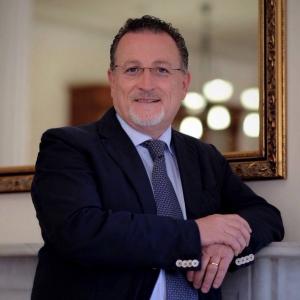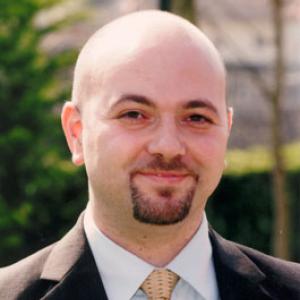Cross-Appointed with Gender Studies
Cross-Appointed with Film and Media
Affiliated with the Cultural Studies Graduate Program
Associated with the Queen’s-University of Havana Exchange
Research interests: 20th - 21st century German culture, particularly film; European Union cultures; transnational, feminist, gender, critical, and cultural studies theories and movements; Cuban film; cities and mobility cultures; petrocultures
Education
Ph. D. Comparative Literature, University of California, Berkeley, USA, 2004
M.A. Comparative Literature. University of California, Berkeley, 1995
B.A. summa cum laude Comparative Literature and German, University of Illinois at Urbana-Champaign, USA , 1992
About
After completing a Comparative Literature PhD from UC Berkeley, Professor Hosek was a Stanford Fellow in the Humanities until coming to Queen's in 2007. She has published on literature, film, urban mobility cultures, critical pedagogies, critical theory and neuroscience, digital technology, and the women's movement. Her monograph analyzes the cultural influences of the global South on the North through Cuba and Germany. Sun, Sex and Socialism: Cuba in the German Imaginary (University of Toronto Press, 2012) received support from the Berlin Studienstiftung des Abgeordnetenhauses, the DAAD, the Humboldt and the Mellon Foundations, UC Berkeley, the National Coalition of Women in German (WiG) and Queen's. An article stemming from it won the 2008 National Coalition of Women in German Best Article Prize and has been published in three languages.
Her collaborative documentary Rolando en La Habana: bicycle stories (with Jaime Santos) (2016) earned several awards and has screened in many international festivals and on Latin American television.
Professor Hosek co-edited Cultural Topographies of the New Berlin with Karin Bauer (Berghahn, 2017) and Christa Wolf: A Companion with Sonja Klocke (De Gruyter, 2018).
Jennifer's current major projects -- a monograph on urban mobility cultures and the peer-to-peer language exchange e-tool LinguaeLive -- have each been funded by the Social Sciences and Humanities Research Council of Canada and internal grants. Professor Hosek also co-organized the Faculty of Arts and Sciences and School of Policy Studies lecture series Contagion Cultures https://www.queensu.ca/sps/events.
Her teaching areas fall under German Studies, International Studies, Film and Media, Critical and Cultural Studies, and Global Development Studies (Cuba).
Teaching
Professor Hosek teaches:
GRMN 101 and GRMN 102: Beginner German I and II
GRMN 201 and 202: Intermediate German I and II
GRMN 309: Survey of German Cultural History II
GRMN 317: Contemporary Germany through Media and News
LLCU 326: Film in the New Europe
LLCU 206: Rebel Cities
Updated June 2025







